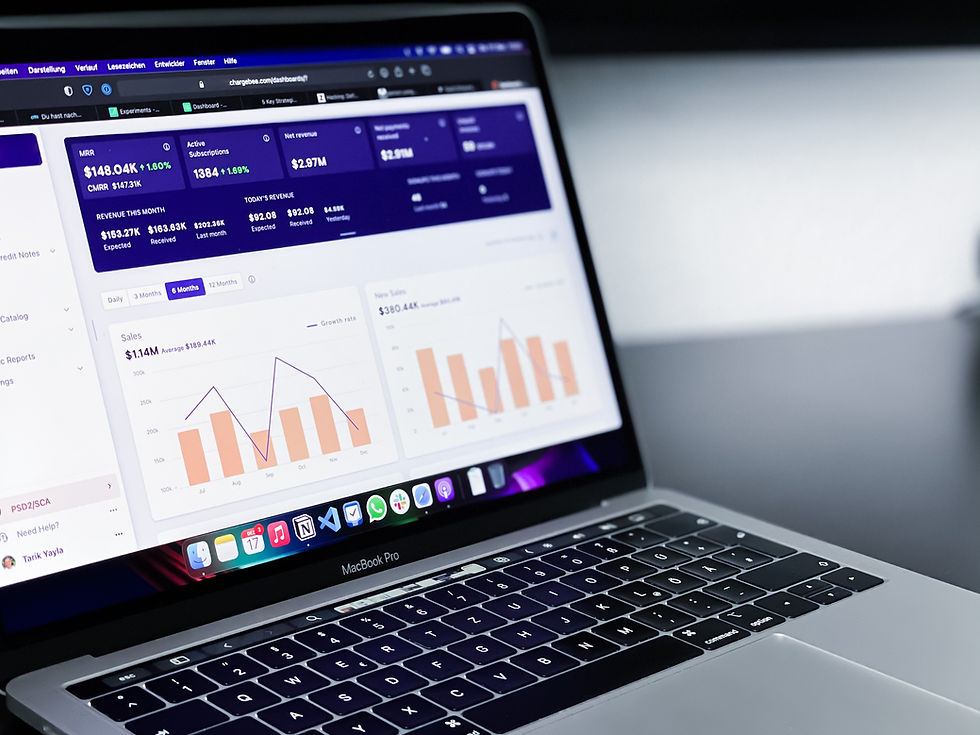Chapter 6: What Good Reporting Looks Like
- Admin
- May 19
- 3 min read
Chapter 6 of Operations That Scale
For most startups, reporting is seen as a high pressure chore, often used as a tool to display your best successes at a board meeting or to prospective funders.
For purpose-driven founders, the pressure is even higher. You’re likely not just reporting to investors. You’re sharing metrics with grant-makers, government bodies and foundations. You might be balancing ESG disclosures, DEI commitments and quarterly cash flow forecasts.
At Compact, we believe reporting shouldn’t be reactive or performative. It should be a tool that helps you operate better, communicate clearly, and show progress on the things that matter most—financially and mission-wise. Below we have summarised our approach.

Why most reporting falls short
Early-stage reporting often goes wrong in a few predictable ways:
It’s scrambled together at the last minute, with screenshots and spreadsheets.
It’s built for external optics, not internal decision-making.
It’s financially accurate but mission-empty, or the other way around.
It’s based on what the last investor asked for, rather than what the organisation needs.
This kind of reporting doesn’t help founders run better companies. It just ticks a box.
Great reporting does three things
Whether you’re a high-growth SaaS startup or a purpose-driven climate org, good reporting should help you:
Make decisions faster -> You should never need to guess your runway, your hiring capacity, or the size of your pipeline.
Communicate clearly to every stakeholder -> Investors care about burn and growth. Grant-makers care about outcomes and reach. Your team cares about progress. A good report speaks to each, without rewriting it every time.
Stay grounded in your mission -> Reporting should connect money and mission not treat them as separate lanes.
The three reports every purpose-driven organisation needs
Even without a CFO, you can produce reliable, lightweight reports that keep everyone aligned. Start with these:
1. Monthly Finance Snapshot
Cash in / cash out
Runway and burn
Budget vs actuals (high-level)
Key notes (major spend changes, one-offs, risks)
→ Audience: Internal leadership, board, funders
2. Impact Dashboard
Outputs (what you did) vs Outcomes (what changed)
Segment by core impact areas (e.g. education, environment, access)
Milestones vs targets (aligned to funding or grants)
→ Audience: Foundations, partners, impact investors
3. Operational Tracker
Hiring status and team changes
Active programs / product cycles
Pipeline status or community metrics
→ Audience: Internal, board updates, grant monitoring
These don’t need to be hugely detailed but they should be consistent and there should be a clear reason why you track them. These can be pulled into a Google Slides deck, auto-populated Google Sheet or Notion dashboard so that it can be easily updated and simple to read.
Our view: build reports useful for real life
Your stakeholders want to believe in you and follow your progress. And trust and confidence scales with clarity. Good reporting is a form of stewardship. It shows you're in control, that you're not losing sight of your mission or objectives even as you scale.
We help purpose-driven startups set up a reporting system that:
Pulls data automatically from tools like Xero, CRMs, Airtable and HR tools
Combines financial and impact metrics in a single update
Can be filtered for different audiences (investor vs foundation vs team)
Is ready in minutes, not hours or days, when someone asks for it
Our templates are built to show up every month. We believe that if you have the right setup, reporting should feel like a rhythm, not a scary moment.
Mistakes to avoid
Only reporting when asked so you’re always on the back foot
Over-reporting to one audience and forgetting the others
Leaving impact metrics undefined or overly qualitative
Running multiple versions of truth between finance, ops and grants teams
Delaying systems setup until a grantor or investor forces the issue
Want reporting that helps you run your startup?
We’ll help you build a lightweight reporting system that aligns with your values and gives you confidence in where you're going.




Comments